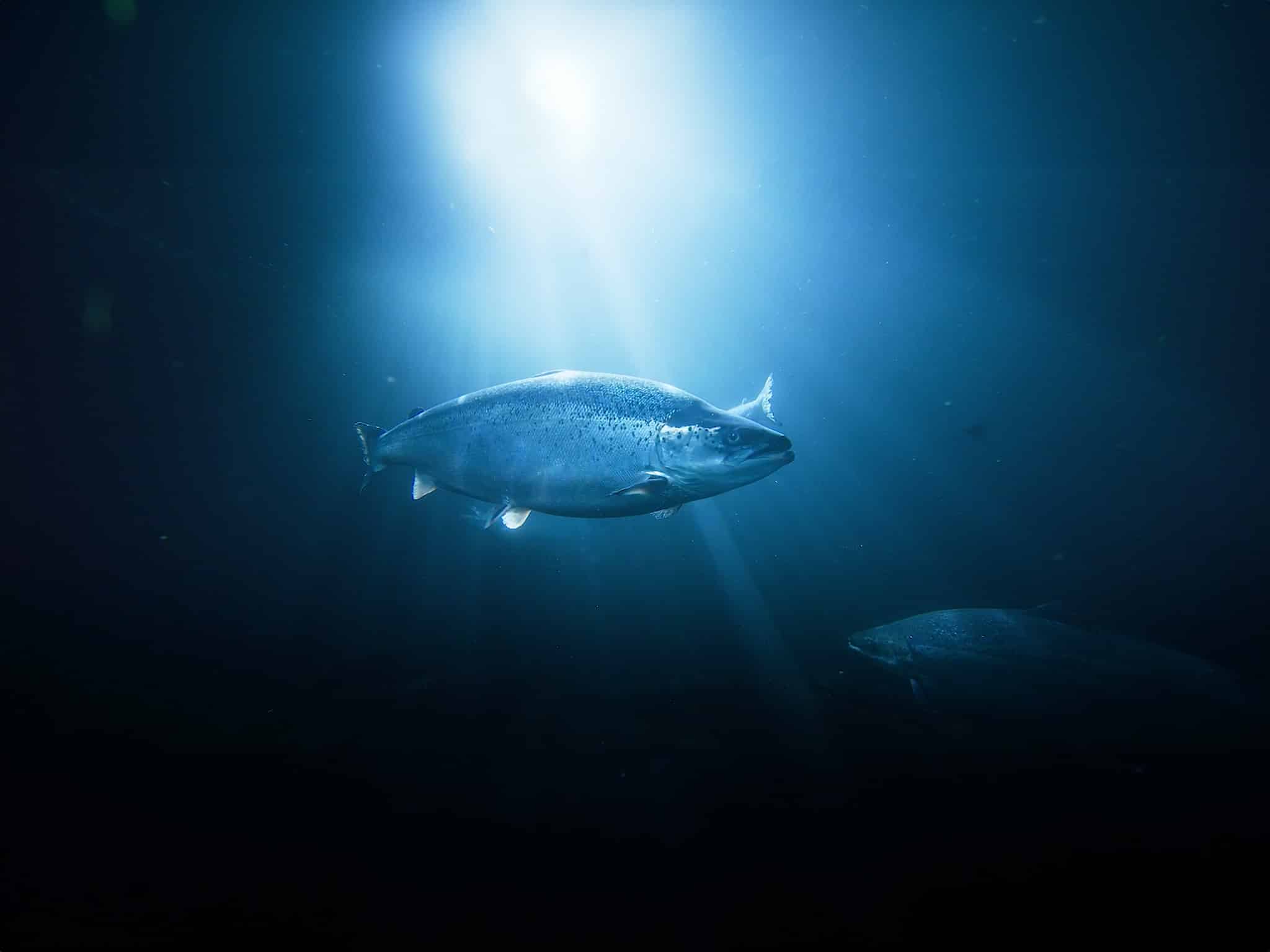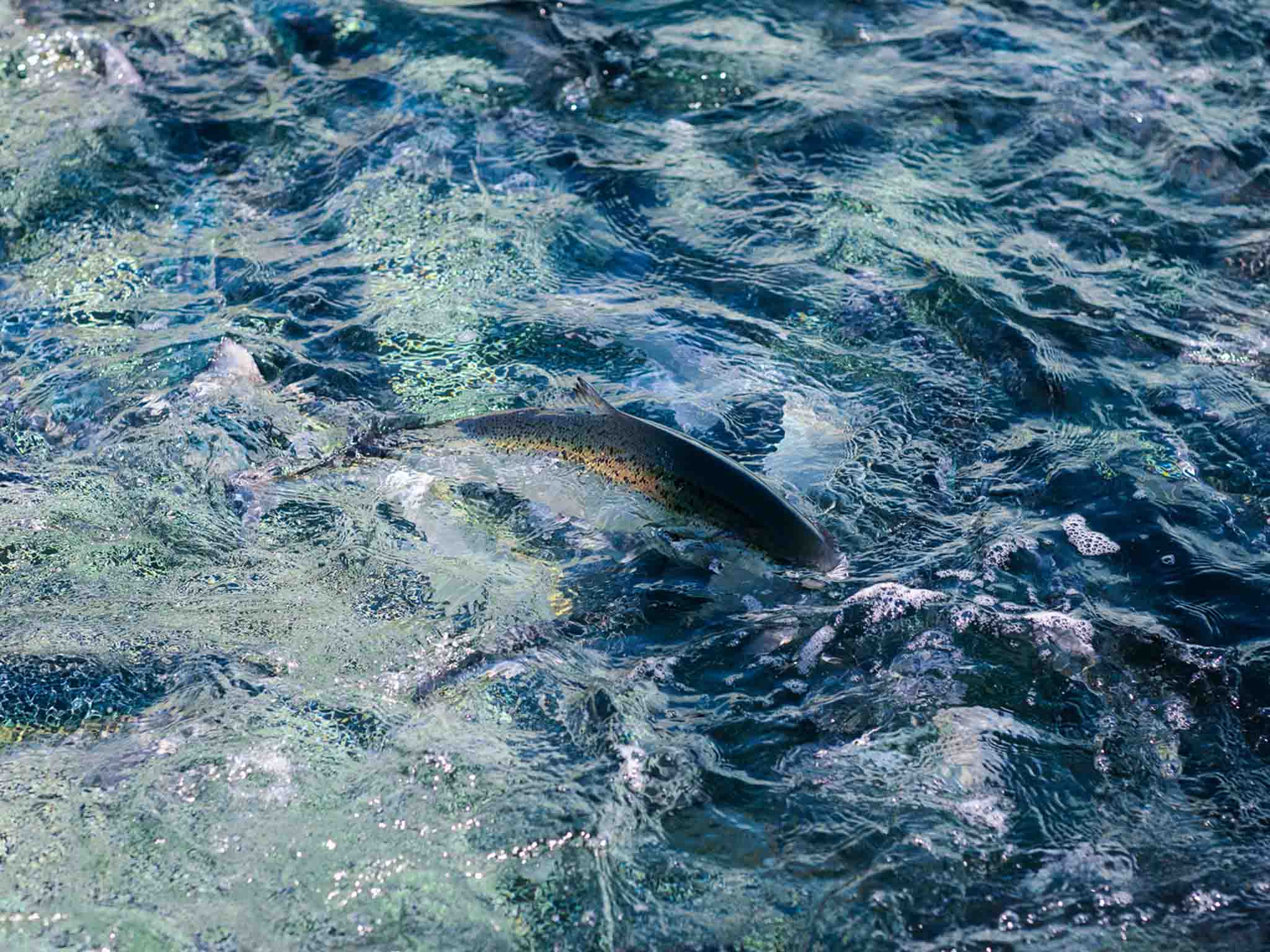
Fish
Farming on the salmon’s terms
“Passion for Salmon” is the keystone on which SalMar’s business rests. Our objective is to produce sustainable and healthy protein for an ever-growing global population, while remaining focused on the salmon itself.
Sustainable salmon farming must be practiced on the salmon’s terms. This means the salmon must come first in all aspects of our activity.


Fish welfare is always in focus
Fish welfare is paramount for successful fish farming, and SalMar is actively engaged in developing and implementing initiatives and procedures to improve fish welfare. Read more about our approach in our latest Sustainability Report.
Zero-vision for escapes
SalMar works actively to avoid escape incidents. This is done through established work procedures, risk awareness, and active participation in professional processes surrounding technical standards in the industry. The dedicated work in the industry has resulted in a clear downward trend in escapes.
Biodiversity
We have a responsibility to make sure that our activities do not negatively affect our surroundings. This applies both to our direct operations and in our supply chain. Negative impacts on biodiversity is a global challenge where SalMar works to limit its impact.
Gentle lice treatments
Salmon lice are natural parasites in seawater. As a salmon farmer, our job is to ensure that our salmon can coexist with the lice. Salmon lice can affect meat quality, and in worst case lead to disease and death. Therefore, we work preventively to keep the lice levels down and apply treatment regimens which are kind to both the fish and the environment.
Our salmon is antibiotics-free
In the early beginnings of salmon farming, antibiotics were actively used as a way to combat illness. This practice came to an end when we started developing vaccines that the salmon was given prior to entering the sea. Today, the Norwegian salmon farming industry is close to antibiotics-free. Have a look at SalMars Antibiotics-policy here.
You can read more about these subjects in our latest annual report: